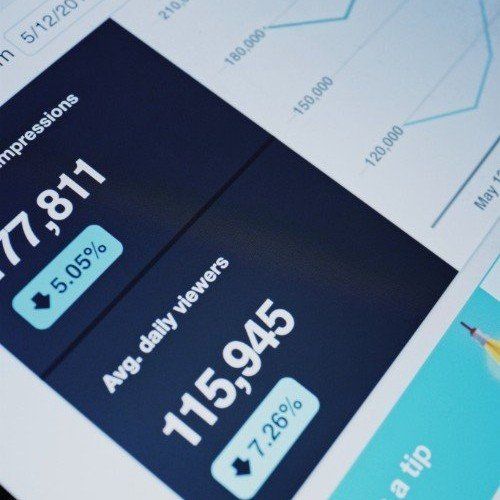Official Push360 Blog
How to Improve Google Ad Performance Q&A
- By Eliza Hammon
- •
- 13 Jul, 2018
Get results for your Google Ads with advice from an industry professional.

In the complex world of digital marketing, advice from successful individuals in the field is indispensable.We sat down with our Digital Marketing Specialist Rick Packey to learn the tips and tricks Push360 uses to get results that consistently wow their clients.
Here’s a few tips from Rick:
What are some little secrets you use as a Google Expert?
I primarily stick to relevance across campaigns, meaning to keep key phrases present in all sections of a campaign. If you had a campaign selling electric razors, you would want the key phrase "electric razor" in the campaign, in the ad group, in the keywords within the ad group, in the ad headline itself, in the landing page, and even the long-tail URL itself. This lets Google know your ads are likely relevant to what the user is looking for, and usually results in a cheaper overall cost of your campaign. If you had multiple variations of "electric razor", such as "electric trimmer", or "electric shaver", you would create a new campaign, new ad group, new ads, etc with that new key phrase present across each step.
Which of your ideas are the biggest winners in your ad campaigns?
See which competitor search terms are commonly triggering your ads, then making campaigns targeting those search queries. This helps you identify the best keywords to be targeting in your ads. If you’re a small or new company this is particularly useful. A lot of times you can learn from the past mistakes of older companies, even if they’re your competitors.
When you target for a small business what are the primary audience development tools you use?
I use a keyword planner to find other relevant search queries that are related to the business’s main offering. The planner I use the most is Google’s, although there are others available. I also use instant targeting campaigns on the display network to see which placements are getting the most attention and clicks. With this information I can optimize the rest of the ads I have running.
If a campaign is starting to flatten, how soon do you throw a different test or audience at it?
I wait at least one week to see if a campaign can get any traction before I start to develop new ones. Even then I don’t turn off the first campaign immediately as it can take up to 2-3 weeks to get a proper analysis of a campaign’s performance. Having multiple smaller campaigns running at once can be more insightful than having one large one.
How many Audience tests will you run at one time?
Two to three. That way you don't get overwhelmed with too many metrics to compare. If there’s to many variables it’s next to impossible to identify what exactly it is that’s making some campaigns perform better than others. You want to have a clear comparison analysis of each campaign.
What are the worst mistakes to make when first setting up a campaign?
Making one ad group and stuffing hundreds of keywords in the ad group. As mentioned earlier, you want to stay relevant and consistent with your key phrases through each step of the buyer's journey. Having one large campaign instead of multiple ones can also hurt your quality score, which is Google’s way of determining how relevant your ads are to your audience. The better your quality score the better ad placement you’ll have.
What are the metrics you watch closest to measure your success and why?
Typically click-through-rate (CTR) and conversion rate. You can get a pretty good idea if your ads are relevant if most people who see your ad click through to it. From there you can start optimizing your ads attached to those keywords to see which gets a better quality store, higher CTR, lower cost per conversion, etc.
We'd like to thank Rick for taking the time to talk with us! Having professional insight can make all the difference in the performance of your campaigns. Need help with your Ads? Push360 offers a complete digital marketing solution.
